His whole life was a shining example of a great intellectual, a culturalist, a revolutionary soldier who used his pen as a sharp, dedicated and persistent weapon, leaving a deep impression in the hearts of readers and colleagues.

The great tree of revolutionary journalism
Journalist Phan Quang was born into a family with a tradition of patriotism and education in Thuong Xa village, Hai Thuong commune, Hai Lang district, Quang Tri province. At the age of twenty, he entered the revolutionary journalism world through the "door" of the National Salvation Newspaper of Inter-zone IV.
In 1954, when peace was restored, he was transferred to Nhan Dan Newspaper, the official mouthpiece of the Party, where the powerful writers of the revolutionary press gathered.
One day, on the morning of the first day of the Lunar New Year (1956), President Ho Chi Minh unexpectedly came to Nhan Dan Newspaper. The first person to welcome him that day was the young reporter on duty at the editorial office, Phan Quang. Uncle Ho's wishes that year: "I wish you to write correctly and well, to have many readers... Only with many readers can the press mobilize the masses to fulfill their duties for the country and the people" became the guiding principle in the career of journalist Phan Quang.
As a serious writer, always diligent in researching, delving into thoughts, and turning over issues, at Nhan Dan Newspaper, Phan Quang has worked in key departments such as Agriculture, Economics, Party Building, Resident Reporters... With his broad knowledge, profound experience and far-sighted vision, he writes about any field that raises issues for thought. In particular, his articles on agriculture, farmers, and rural areas during the anti-American resistance war are both valuable in current events and bear a strong personal mark - empathy, understanding, and strong belief in the people and the country.
Journalist Hoang Tung once wrote about journalist Phan Quang as follows: “He is the one who travels the most, writes the most, even during the fiercest days of the resistance war against America. Traveling by bicycle under the roar of planes, under rain of bombs but still writing, still reaching the ends of the village”.
Phan Quang not only writes, but also delves into the strategic issues of the country, especially agriculture, farmers and rural areas. He has a special talent for listening to ordinary people, feeling the breath of each crop season, each row of potatoes, each row of rice. Therefore, his essays and investigative reports have both the nature of a farmer and the vision of a social organizer.
From a prominent writer, Phan Quang gradually entered the role of manager and organizer. In the role of Secretary General, then President of the Vietnam Journalists Association for two terms (1989 - 2000), he devoted himself to strengthening the foundation of journalistic ethics, guiding the career of an entire generation. He was the one who proposed the establishment of the Code of Ethics for Journalists, a document that later developed into "10 regulations on professional ethics of Vietnamese journalists", which still retains its relevance and value today.
Not stopping at print media, Phan Quang also left a deep mark in the field of radio. In 1988, he became the General Director of Voice of Vietnam in the context of the country entering the renovation process. Under his leadership, the station stepped out of the old path, modernized the technical infrastructure, and built a live radio program - something that had never happened before. He encouraged the young team to boldly innovate the way of expression, thereby creating a new wave of communication: closer to the people, more vivid, and more profound.
In his journalism career, Phan Quang is also the one who laid the foundation for press relations. As Vice Chairman of the National Assembly's Foreign Affairs Committee and Vice President of the International Journalists Organization, he contributed to bringing the voice of Vietnamese journalism to friends around the world, while still preserving Vietnam's cultural and political identity. His speeches in French at international forums were not only convincing, but also made international friends admire him for his elegance, intelligence and humanity emanating from a Vietnamese person.
From life and experience, journalist Phan Quang concluded: In journalism, no matter what form it takes, the writer must go through the process of "Reading - Going - Thinking - Writing", and once he has written, the article he writes must be "Correct - Accurate - Fast - Good". Accordingly, journalists must Read a lot to improve their knowledge, must Travel a lot to gain more experience, must Think regularly to find ideas with personal imprints, and must Write a lot, write constantly to be proficient in the profession. And when holding a pen in hand or sitting in front of a computer desk, we need to pay attention to how we write Correctly, that is, truthfully, and at the same time must be Accurate, accurate to the political mission, the intention of the newspaper at a certain time. And when working as a journalist, at any time we must be Fast, only by being fast can we be competitive. And finally, try to write Good, because "Only when the newspaper is good will people read it" (Uncle Ho's words).
The harmony between journalism and literature
One of the great lessons that journalist Phan Quang often tells his students is: "Journalism must have literary quality."
He called books his “eternal friend”, the great teacher who taught him to write, live and work. He read like he breathed. From Eastern classics to Western encyclopedias, from literature to philosophy, from political theory to personal memoirs, he read not selectively according to taste but according to the guidance of academic spirit. In the book “Time Does Not Change Color”, he confided that his passion for reading was “an inborn defect”, and that, “I almost lived in an environment of books, wherever I worked, wherever I looked, I saw books and books”.
Thanks to that rich knowledge, he writes articles with depth, thought, and vision. But also thanks to that, he writes like a storyteller who understands human life.
In Phan Quang, journalism and literature do not compete with each other, but blend and complement each other. He once wrote: “Even if it is just a small article, I still strive to have literary quality. Not only in words, but also in images, structure, in associations from the past to the future... Literary quality is to touch the fate of people”. That is why, his articles, even though written a long time ago, still have the same value when reread, because they not only record current events, but also retain the spirit of the times.
Not only writing, Phan Quang is also an excellent translator. The book series “One Thousand and One Nights” has been reprinted more than 40 times, “One Thousand and One Days” has been reprinted nearly 20 times. These two books are like fairy tale gifts he gave to Vietnamese children because in each translated sentence, readers can feel the cherishing of culture and beauty.
With over 70 years of dedication and creativity, journalist Phan Quang has a huge fortune of thousands of articles and more than 50 published literary works of many genres: short stories, memoirs, essays, translated literary works... Perhaps in his writing career, there are few people who work as a manager, a journalist, and a writer and have such a rich fortune. That shows his constant efforts.
With a wealth of experience and profound thoughts on history and culture, he is still writing diligently, publishing books regularly, and embracing life with freshness. He is truly an inspiration and a motivator for young journalists, as he advised: "We - young or old - all need to learn, learn for life." That is not only a philosophy of life, but also the personality of a person who has devoted his whole life to writing, to journalism, and to the nation.
Source: https://hanoimoi.vn/nha-bao-phan-quang-mot-doi-viet-mot-doi-cong-hien-706020.html




![[Photo] National Assembly Chairman Tran Thanh Man begins attending AIPA-46 activities](https://vphoto.vietnam.vn/thumb/1200x675/vietnam/resource/IMAGE/2025/9/18/73487ff8ed57412eab9211273946c14d)



![[Photo] National Assembly Chairman Tran Thanh Man attends the first plenary session of AIPA-46](https://vphoto.vietnam.vn/thumb/1200x675/vietnam/resource/IMAGE/2025/9/18/4593de8b5fb349d7a3da4b5de7faccf6)


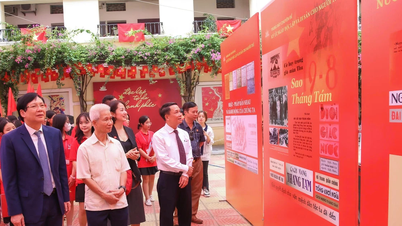
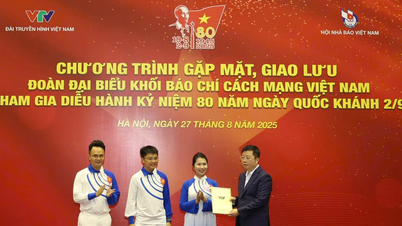

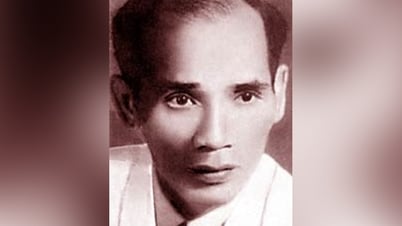








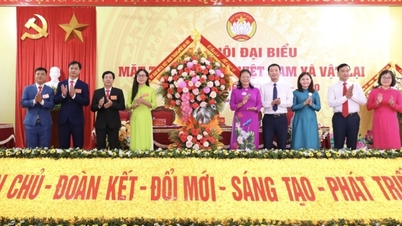
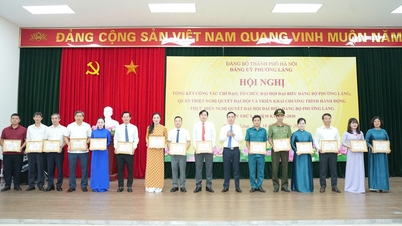









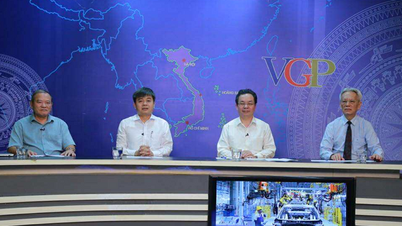
![[Photo] Inside the Imperial Academy relic of Hue Citadel before the hundred billion dollar restoration](https://vphoto.vietnam.vn/thumb/1200x675/vietnam/resource/IMAGE/2025/9/18/77fd186af68341b1a8bffd072fa896a6)



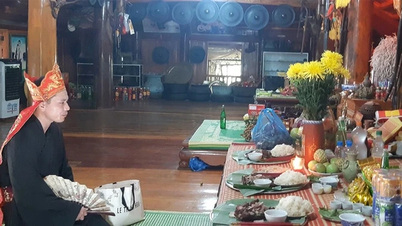







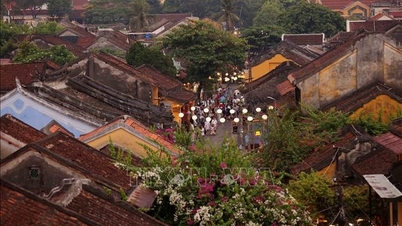
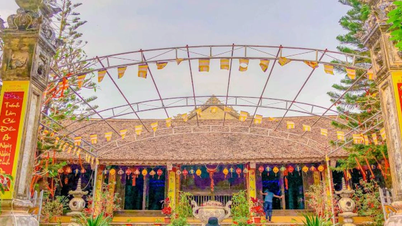


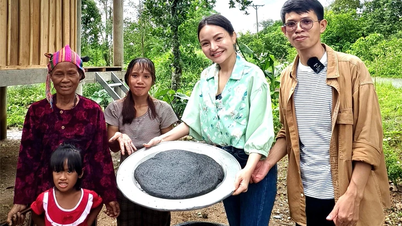

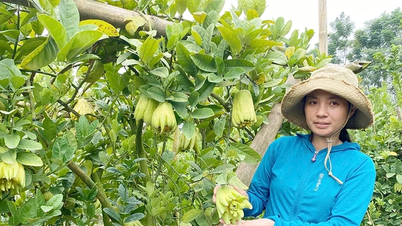



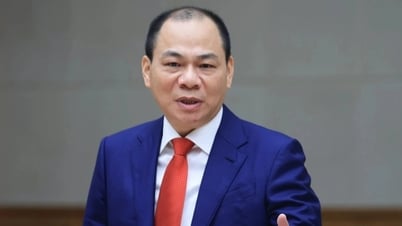
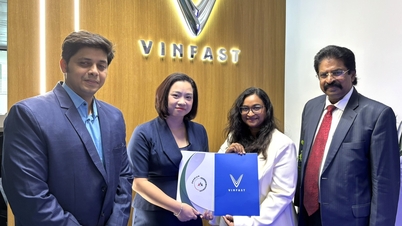





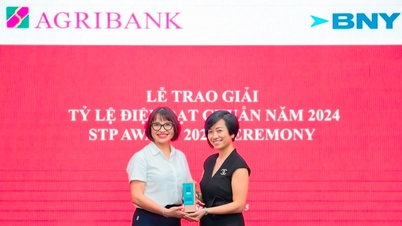
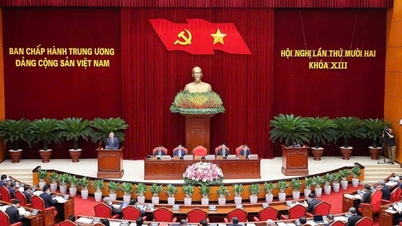






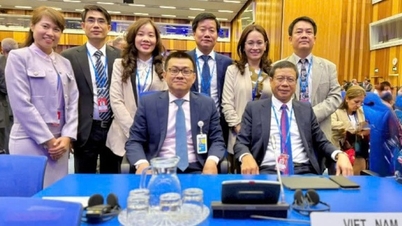




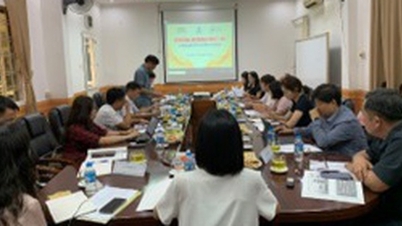


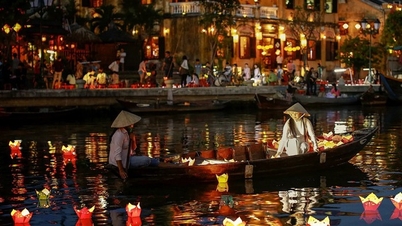
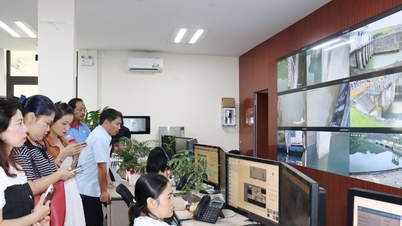



















Comment (0)